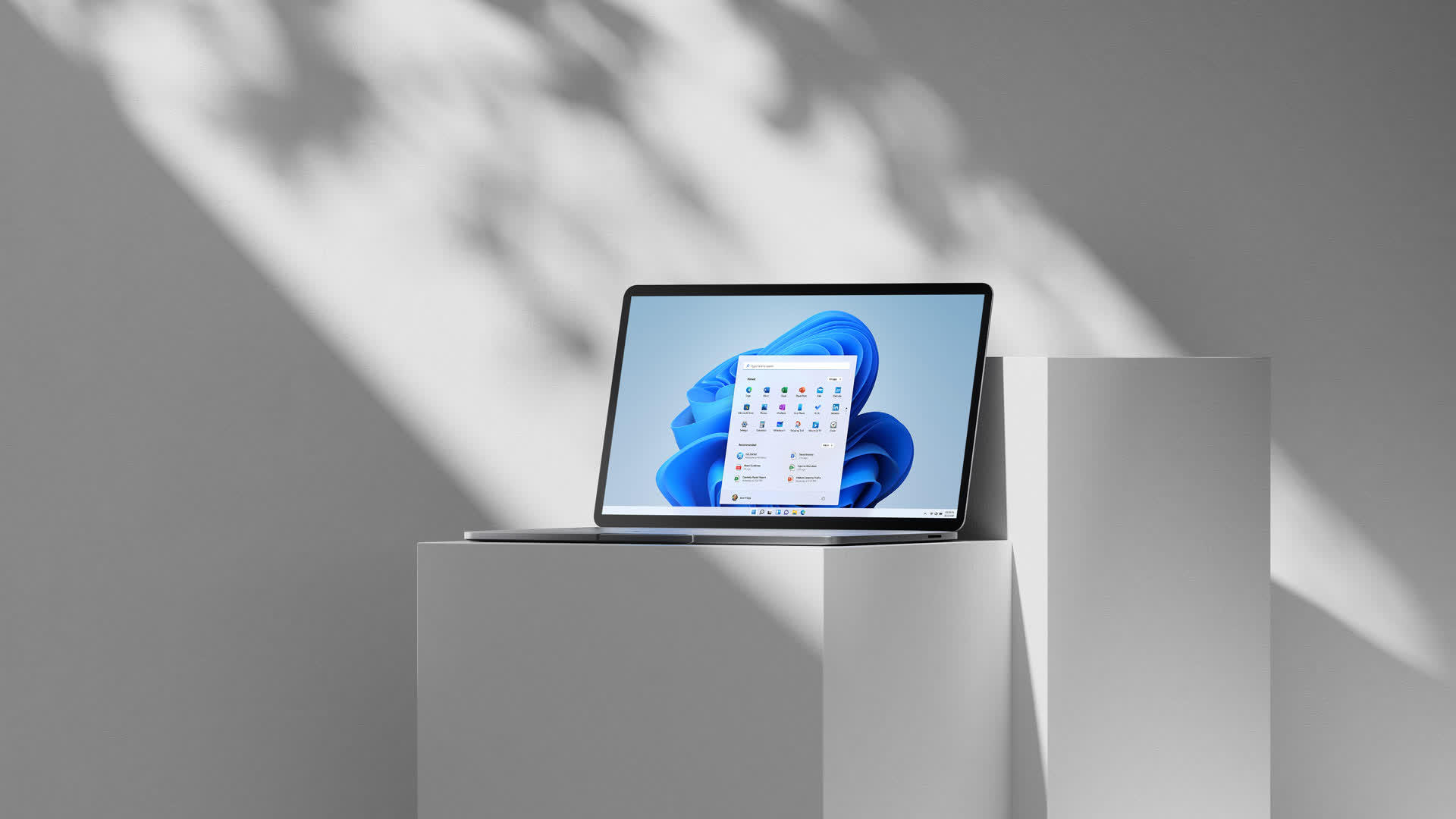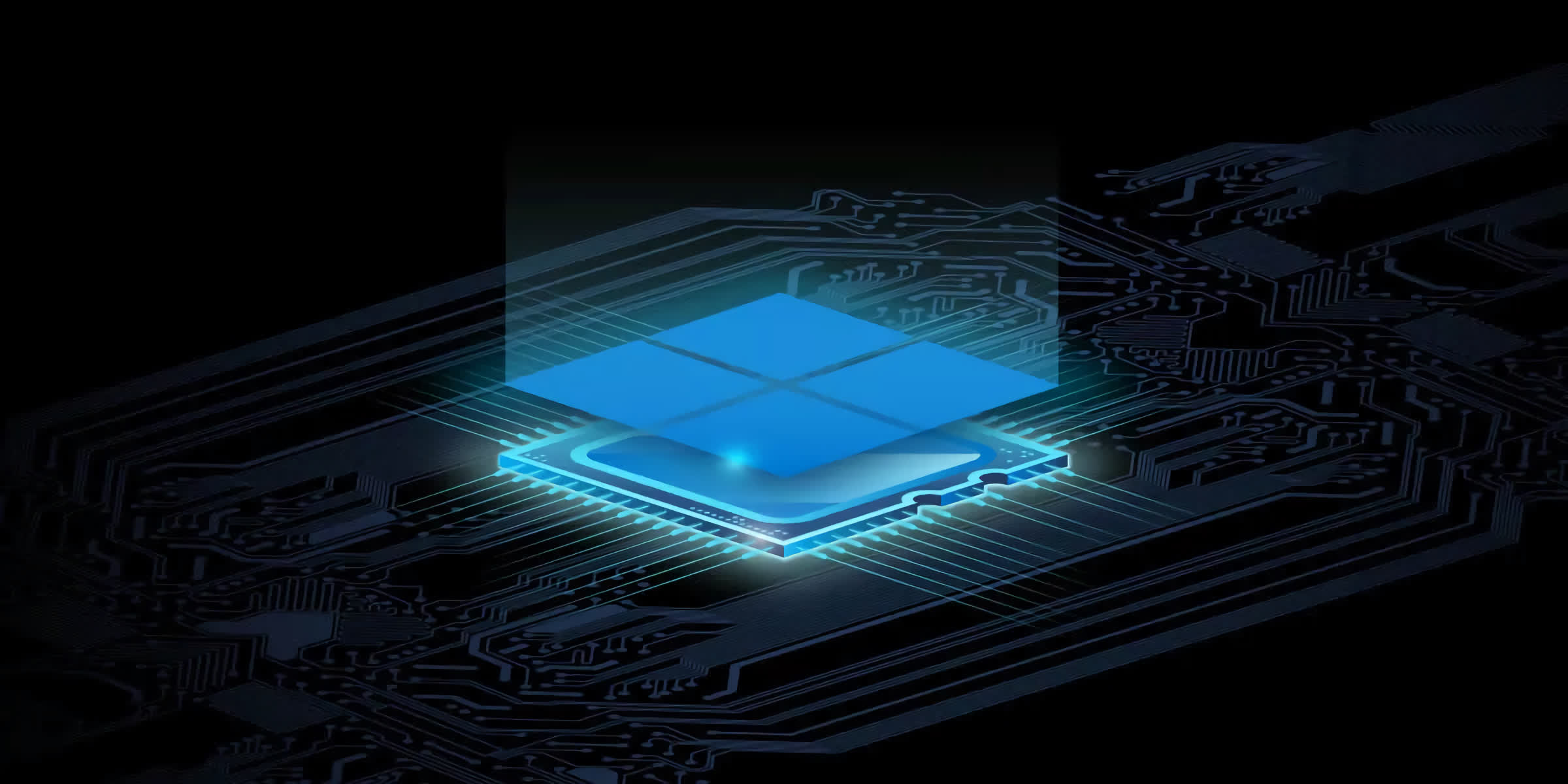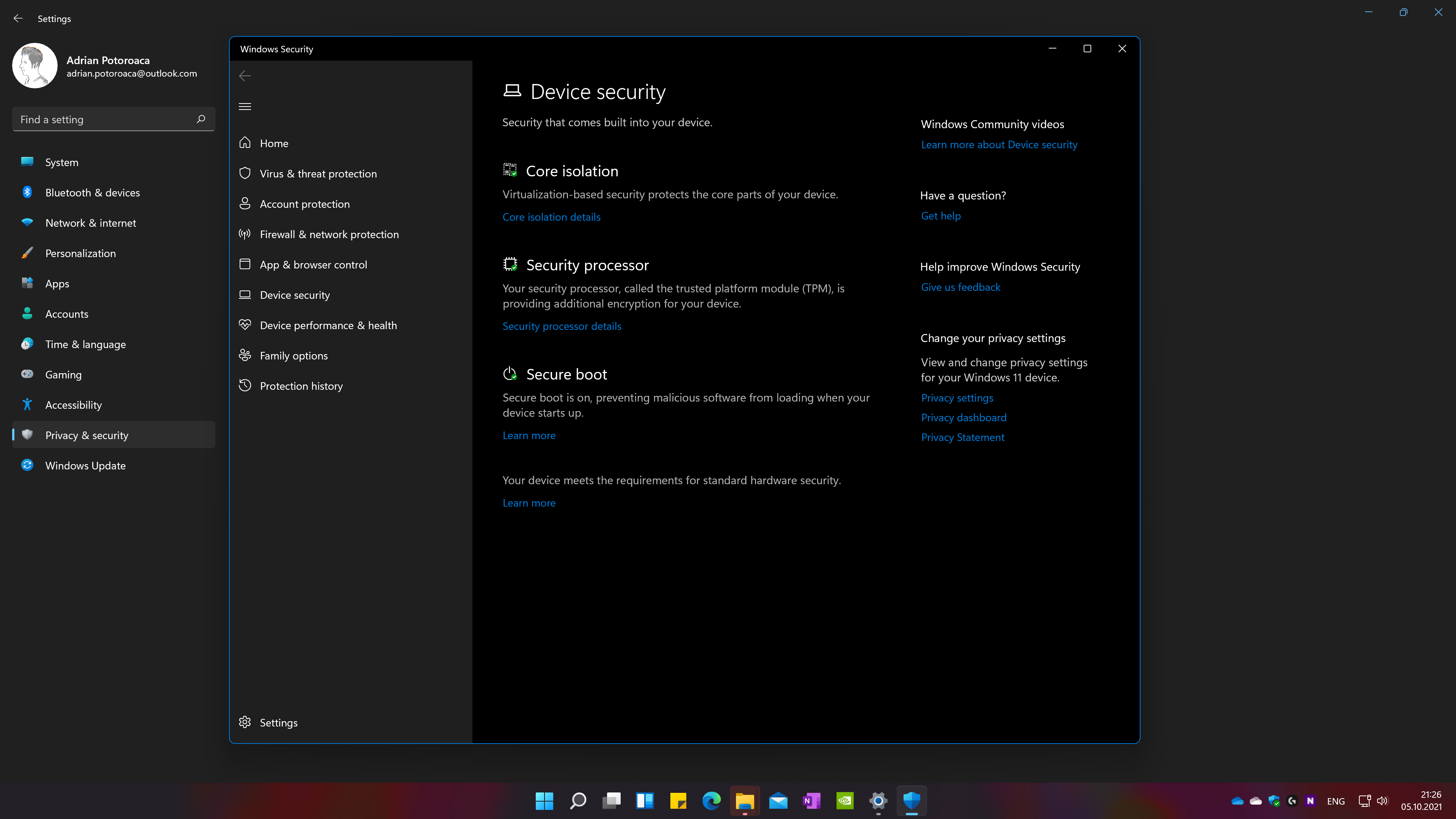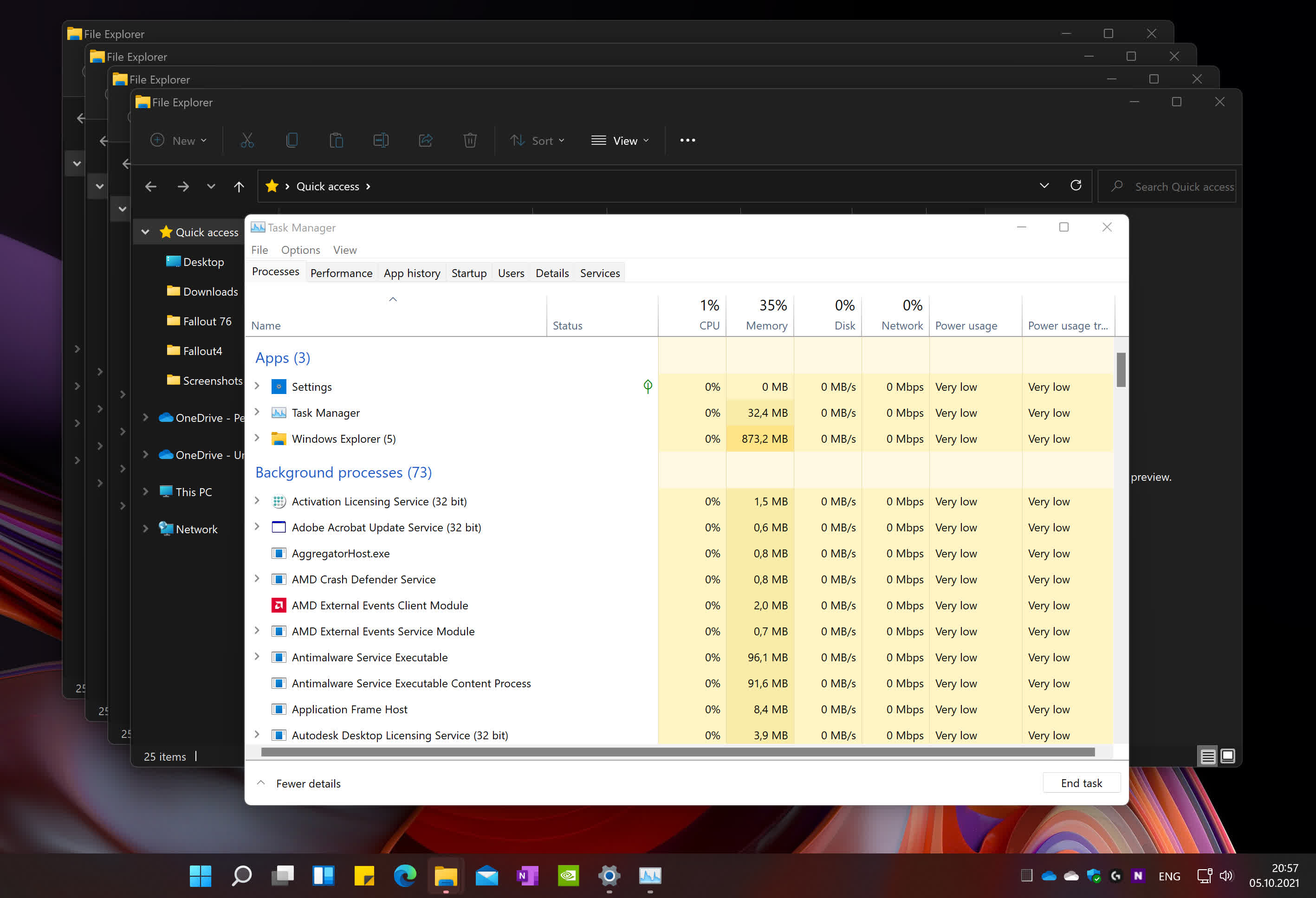In context: Windows 11 requires TPM 2.0 on all machines, including virtual ones. This is due to Microsoft's insistence on making Windows more secure against hackers that poke and prod it for vulnerabilities, but it also comes at the cost of performance on systems where virtualization-based security is enabled. At the same time, early adopters will find that Microsoft's new operating system comes with the customary collection of bugs, some of which can also impact the general performance of your PC.

Microsoft today opened the doors for Windows users to upgrade to Windows 11, which is a weird mix of various UI improvements, new and familiar features, missing functionality that was promised before release and security improvements, all with less legacy clutter. The upgrade process is smoother than it's ever been, but once you're up and running with Windows 11 you'll have to unlearn a few old habits and adjust to the fact that it's still far from perfect, despite Microsoft's best effort to make the interface more modern and inviting.
To put it simply, the new operating system is still a work in progress, but early adopters have only a few things to worry about. The first is that in building Windows 11, Microsoft wanted to apply a layer of enterprise-grade security to all machines capable of running it. This has sparked a lot of controversy around the system requirements, which are more strict than those of Windows 10 and leave out many existing PCs with relatively modern hardware.

If, however, you migrate to Windows 11 through purchasing a new PC, you might see reduced gaming performance due to Microsoft's implementation of virtualization-based security (VBS). The issue was first discovered by the folks over at PC Gamer, who did some testing and found that OEM machines performed below expectations.
It turns out that VBS is enabled by default on these systems, and it leads to performance regressions of up to five percent in Far Cry New Dawn, 10 percent in the 3DMark Time Spy benchmark, 25 percent in Horizon Zero Dawn, and 28 percent in Shadow of the Tomb Raider. These findings have been confirmed by ComputerBase and UL Benchmarks, and the latter is working on an update for its benchmark utilities that will account for VBS and help users compare scores fairly.

For context, VBS was first introduced in Windows 10 as an optional feature and uses hardware virtualization to create and isolate a secure region of memory from the normal operating system. Windows can then use this virtual secure mode to host several security features and prevent malware from exploiting vulnerabilities in the operating system and injecting malicious code. For enterprise customers, this provides an additional security layer.
With Windows 11, Microsoft wants to make VBS standard across both consumer and enterprise/government machines. To be clear, VBS will only be enabled by default on fresh installs. If you perform an in-place upgrade using an ISO, via the Windows 11 Installation Assistant, or after being offered the upgrade via Windows Update, VBS will be off unless it was manually turned on before starting the upgrade process.
The second biggest source of annoyances for early adopters who make the move to Windows 11 will be a series of bugs that will likely be fixed in the coming weeks or months. Some are serious enough to degrade your experience, such as a memory leak related to the File Explorer process that can quickly eat up your available RAM.

This one was discovered by Reddit user u/gyrohan269 two months ago, but it doesn't appear to be fixed in the public release build (22000.194). Normally, File Explorer -- or any other process for that matter -- should free up the allocated memory space once it's no longer needed or the process itself has been terminated.
However, in Windows 11, File Explorer seems to hang on to almost all of the RAM allocated whenever you open a new window. This means that if you work with a lot of File Explorer windows open, closing them leaves garbage in the system memory that has the potential to slow down your system when using RAM-hungry applications, be it browsers or productivity software. We were able to replicate the issue ourselves, and this could be impactful especially on machines with less than eight gigabytes of RAM.
As of writing, the only way to fix this problem is to open up Task Manager and manually restart the File Explorer process.